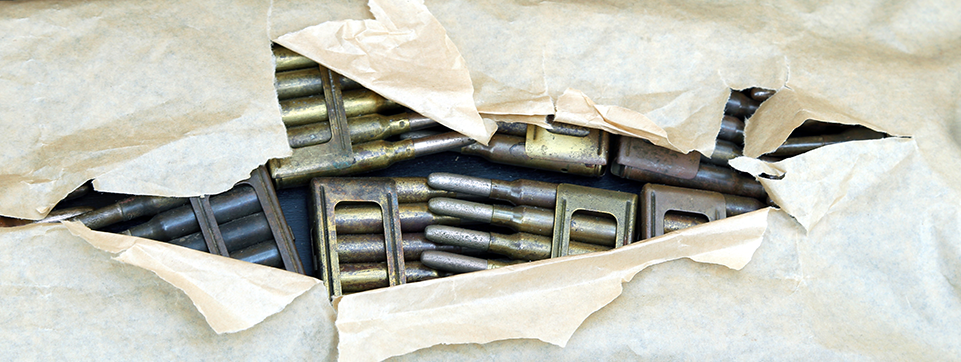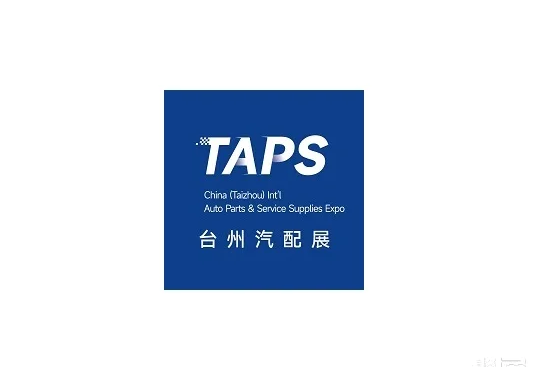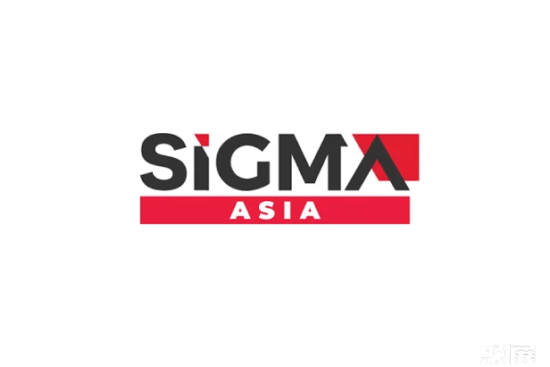
If you don’t know where to look, it can take a long time to stumble across U.S. regulations restricting weapons brokering.
There was no such regulation until 1996, when Congress amended Section 38 of the Arms Export Control Act to require persons engaged in brokering U.S. and non-U.S. defense equipment and technology to register with the government and generally obtain approval for their activities.
At the time, a report from the House International Relations Committee stated:
“… In some cases, U.S. citizens engage in arms transactions that are inconsistent with U.S. policy. Some of these transactions could exacerbate regional instability, provide support for terrorism, or violate U.S. policy decisions not to sell weapons to particular countries or regions. Expanding the United States’ legal authority to regulate brokering activities under this provision will help curb such transactions.”
The Act was enacted the following year and added Part 129 – Registration and Licensing of Brokers – to the International Traffic in Arms Regulations.
Arms Broker Background
ITAR primarily deals with the movement of U.S. defense articles and equipment from the United States to the rest of the world, and even imposes controls on the re-export and re-transfer of ITAR-controlled goods and technology after they have been legally exported.
But given the United States’ position as the world’s largest arms exporter, the International Traffic in Arms Regulations before 1996 did not cover some sensitive private sector activities that could affect U.S. foreign policy.
For example, someone could work from an office anywhere in the U.S. and, for a fee, arrange a weapons sale between two foreign entities—perhaps an Estonian seller of ammunition and a buyer in Iraq. As long as the ammunition does not originate from or enter the U.S. and is not subject to ITAR, the State Department would have no authority to review such a transaction or even be aware that it took place.
But when Part 129 was added to the International Traffic in Arms Regulations, it gave the State Department a process to monitor whether brokered transactions conflict with U.S. foreign policy.
The initial rules have since been revised several times and were completely overhauled in 2013 to their current basic form.
Identifying Defense Brokers
Being an arms broker is not as exciting as it is portrayed in Hollywood movies; it involves a range of activities, most of which are clerical.
There are more companies registered as arms brokers than individuals. But the rule is intentionally broad — which is why it warrants caution. Here’s the order of analysis to understand who is subject to the brokering rules and how to navigate them.
Who are you: Part 129 applies to:
- Any U.S. person, corporation, government agency, or other entity engaging in brokerage activities anywhere in the world;
- Any foreign person or entity engaged in brokerage activities within the United States;
- Any foreign person or entity outside the United States that is owned or controlled by a U.S. person or entity and engages in brokerage activities.
what you do: The International Traffic in Arms Regulations define brokering as “any action that facilitates the manufacture, export, permanent importation, transfer, reexport, or retransfer on behalf of another person of U.S. or foreign defense articles or defense services, regardless of origin.” (For purposes of part 129, the term “defense article or defense service” includes any hardware, technical data, or services covered by the U.S. Munitions List, regardless of origin, as well as items designated on the U.S. Munitions Import List.)
Brokerage business may involve (but is not limited to):
- Financing
- Insurance
- transportation
- Freight Forwarding
- Recruitment
- Promotion
- negotiation
- contract
- arrange
Brokering of items that are regulated by the EAR rather than the ITAR is not covered, nor are strictly administrative services that an arms broker might use in the course of their business, such as renting office space and purchasing advertising. Thus, if two parties rent a conference room at a hotel to finalize an arms deal, the hotel itself is not considered a broker.
Exclusions: There are some meaningful exceptions to the definition of broker, which can be found in ITAR 129.2(b)(2). They include:
- Activities involving only domestic sales or transfers;
- Activities involving items regulated by the EAR but not the ITAR;
- Working in an official capacity for the U.S. government;
- Working for an affiliated company that legally sells weapons and other items governed by ITAR. For example, if a foreign subsidiary of a U.S. weapons manufacturer negotiates a deal on behalf of its parent company, it is not considered brokering—although the deal is still subject to other rules of ITAR.
Registration
If you meet the definition of a broker and not all of your brokerage activities qualify as exempt, then you are a broker and are required to register through the Defense Export Control and Compliance System (DECCS) portal and pay a fee. (Fees currently start at $2,250 per year and increase based on licensed activity.) Brokers generally have the same requirements as exporters to renew their registration annually, notify DDTC of certain changes, and maintain records.
Approval of brokerage activities
After registration, brokers and exporters still need to obtain a license to engage in ITAR-controlled activities. Permission is issued in the form of a license or exemption.
Brokers must obtain prior approval before arranging transactions involving non-U.S. defense articles and services. This is because these items are generally not subject to the International Traffic in Arms Regulations, but they do have the potential to have an impact on U.S. foreign policy.
However, the prior approval requirement for U.S.-origin defense articles and defense services does not apply to all items, only certain items. For example, brokering of entire U.S.-origin aircraft, ships, and tanks requires prior approval, while brokering of U.S.-origin defense article components for these platforms generally does not. For other U.S.-origin items on the USML, brokers do not need prior approval to facilitate transactions (presumably because ITAR still requires exporters or re-exporters to obtain a license before a transaction can proceed.)
There is another change: the brokering rules also apply to items on the U.S. arms import list (See related articles: Permanent vs. Temporary Importation: Where ITAR and ATF Meet) is a separate entity from the USML and falls under the jurisdiction of the Bureau of Alcohol, Tobacco, and Firearms. It is rare for the ITAR to include control lists from other agencies. The reason for this is that many small arms are no longer listed on the USML, so the State Department can maintain jurisdiction over brokering of these firearms as well.
Permits and exemptions
Pre-approval for a brokerage comes in two forms: a license or an exemption.
There are two specific licensing exemptions for brokers:
- You are transacting on behalf of the U.S. government and are subject to specific contractual authorizations from the relevant agencies. The reason is intuitive: you do not need to ask for government approval to do something that the government has already asked you to do.
- If you are based in the United States, other NATO countries, or a few other selected allies, and you exclusively broker arms between those countries, then in most cases involving foreign defense articles or defense services, you do not need to obtain prior brokering permission. (However, you will still need to report your brokering activities in your annual report. This is an example of how recordkeeping discipline is an important part of being a broker.)
If none of the above exemptions apply, you will need to apply for a broker license via Form DS-4294 on the DECCS portal.
Report
All registered brokers are required to file an annual report, which is usually submitted together with the annual registration renewal and fees. All activities must be reported, whether based on a license or exemption. The details reported include all persons involved, the items or services involved, and all details of the transactions.
These brokering regulations are being actively enforced. In March 2022, a U.S. marketing executive was convicted and jailed for arranging for a Chinese manufacturer to manufacture and ship unspecified items on the USML and USMIL with one of its clients. He had never registered as a broker, according to a DOJ press release on the results of the criminal investigation. Academi LLC (formerly Blackwater) has paid nearly $50 million in fines in two cases involving unauthorized brokering activity since 2008, according to media reports.
In 2011, BAE Systems agreed to pay a $79 million civil penalty for “approximately 2,591 violations of ITAR involving unauthorized brokering of U.S. defense articles and services, failure to register as a broker, failure to file annual broker reports, causing unauthorized brokering activity, failure to report payments of fees or commissions related to defense transactions, and failure to maintain records involving transactions controlled by ITAR,” according to a State Department press release.
![]()
Do you have questions about arms brokering and the International Traffic in Arms Regulations? Visit www.learnexportcompliance.com to learn about our company, our faculty, and our highly regarded Export Compliance Professional (ECoP®) certification program. To find upcoming e-seminars, live seminars and live webinars in the U.S., Europe, and elsewhere, and to browse our catalog of more than 80 on-demand webinars, visit our ECTI Academy. You can also call the Export Compliance Training Institute (540-433-3977) for more information.
Scott Gearity is President of ECTI, Inc.












Leave a Reply Cancel reply
You must be logged in to post a comment.